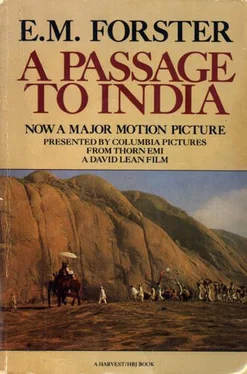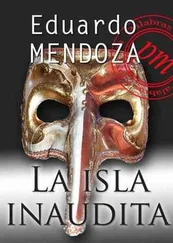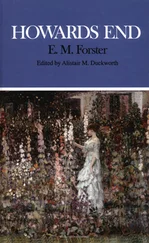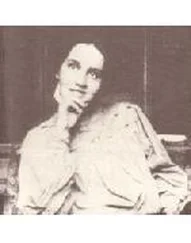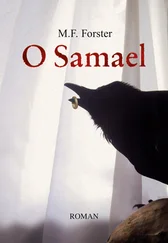"Did you not know that when they were lent to Central India over a Canal Scheme, some Rajah or other gave her a sewing machine in solid gold so that the water should run through his state?"
"And does it?
"No, that is where Mrs. Turton is so skilful. When we poor blacks take bribes, we perform what we are bribed to perform, and the law discovers us in consequence. The English take and do nothing. I admire them."
"We all admire them. Aziz, please pass me the hookah."
"Oh, not yet—hookah is so jolly now."
"You are a very selfish boy." He raised his voice suddenly, and shouted for dinner. Servants shouted back that it was ready. They meant that they wished it was ready, and were so understood, for nobody moved. Then Hamidullah continued, but with changed manner and evident emotion.
"But take my case—the case of young Hugh Bannister. Here is the son of my dear, my dead friends, the Reverend and Mrs. Bannister, whose goodness to me in England I shall never forget or describe. They were father and mother to me, I talked to them as I do now. In the vacations their Rectory became my home. They entrusted all their children to me—I often carried little Hugh about—I took him up to the Funeral of Queen Victoria, and held him in my arms above the crowd."
"Queen Victoria was different," murmured Mahmoud Ali.
"I learn now that this boy is in business as a leather merchant at Cawnpore. Imagine how I long to see him and to pay his fare that this house may be his home. But it is useless. The other Anglo-Indians will have got hold of him long ago. He will probably think that I want something, and I cannot face that from the son of my old friends. Oh, what in this country has gone wrong with everything, Vakil Sahib? I ask you."
Aziz joined in. "Why talk about the English? Brrrr…! Why be either friends with the fellows or not friends? Let us shut them out and be jolly. Queen Victoria and Mrs. Bannister were the only exceptions, and they're dead."
"No, no, I do not admit that, I have met others."
"So have I," said Mahmoud Ali, unexpectedly veering. "All ladies are far from alike." Their mood was changed, and they recalled little kindnesses and courtesies. "She said 'Thank you so much' in the most natural way." "She offered me a lozenge when the dust irritated my throat." Hamidullah could remember more important examples of angelic ministration, but the other, who only knew Anglo-India, had to ransack his memory for scraps, and it was not surprising that he should return to "But of course all this is exceptional. The exception does not prove the rule. The average woman is like Mrs. Turton, and, Aziz, you know what she is." Aziz did not know, but said he did. He too generalized from his disappointments—it is difficult for members of a subject race to do otherwise. Granted the exceptions, he agreed that all Englishwomen are haughty and venal. The gleam passed from the conversation, whose wintry surface unrolled and expanded interminably.
A servant announced dinner. They ignored him. The elder men had reached their eternal politics, Aziz drifted into the garden. The trees smelt sweet—green-blossomed champak—and scraps of Persian poetry came into his head. Dinner, dinner, dinner… but when he returned to the house for it, Mahmoud Ali had drifted away in his turn, to speak to his sais. "Come and see my wife a little then," said Hamidullah, and they spent twenty minutes behind the purdah. Hamidullah Begum was a distant aunt of Aziz, and the only female relative he had in Chandrapore, and she had much to say to him on this occasion about a family circumcision that had been celebrated with imperfect pomp. It was difficult to get away, because until they had had their dinner she would not begin hers, and consequently prolonged her remarks in case they should suppose she was impatient. Having censured the circumcision, she bethought her of kindred topics, and asked Aziz when he was going to be married.
Respectful but irritated, he answered, "Once is enough."
"Yes, he has done his duty," said Hamidullah. "Do not tease him so. He carries on his family, two boys and their sister."
"Aunt, they live most comfortably with my wife's mother, where she was living when she died. I can see them whenever I like. They are such very, very small children."
"And he sends them the whole of his salary and lives like a low-grade clerk, and tells no one the reason. What more do you require him to do?"
But this was not Hamidullah Begum's point, and having courteously changed the conversation for a few moments she returned and made it. She said, "What is to become of all our daughters if men refuse to marry? They will marry beneath them, or—" And she began the oft-told tale of a lady of Imperial descent who could find no husband in the narrow circle where her pride permitted her to mate, and had lived on unwed, her age now thirty, and would die unwed, for no one would have her now. While the tale was in progress, it convinced the two men, the tragedy seemed a slur on the whole community; better polygamy almost, than that a woman should die without the joys God has intended her to receive. Wedlock, motherhood, power in the house—for what else is she born, and how can the man who has denied them to her stand up to face her creator and his own at the last day? Aziz took his leave saying "Perhaps… but later…"—his invariable reply to such an appeal.
"You mustn't put off what you think right," said Hamidullah. "That is why India is in such a plight, because we put off things." But seeing that his young relative looked worried, he added a few soothing words, and thus wiped out any impression that his wife might have made.
During their absence, Mahmoud All had gone off in his carriage leaving a message that he should be back in five minutes, but they were on no account to wait. They sat down to meat with a distant cousin of the house, Mohammed Latif, who lived on Hamidullah's bounty and who occupied the position neither of a servant nor of an equal. He did not speak unless spoken to, and since no one spoke kept unoffended silence. Now and then he belched, in compliment to the richness of the food. A gentle, happy and dishonest old man; all his life he had never done a stroke of work. So long as some one of his relatives had a house he was sure of a home, and it was unlikely that so large a family would all go bankrupt. His wife led a similar existencc some hundreds of miles away—he did not visit her, owing to the expense of the railway ticket. Presently Aziz chaffed him, also the servants, and then began quoting poetry, Persian, Urdu, a little Arabic. His memory was good, and for so young a man he had read largely; the themes he preferred were the decay of Islam and the brevity of Love. They listened delighted, for they took the public view of poetry, not the private which obtains in England. It never bored them to hear words, words; they breathed them with the cool night air, never stopping to analyse; the name of the poet, Hafiz, Hali, Iqbal, was sufficient guarantee. India—a hundred Indias—whispered outside beneath the indifferent moon, but for the time India seemed one and their own, and they regained their departed greatness by hearing its departure lamented, they felt young again because reminded that youth must fly. A servant in scarlet interrupted him; he was the chuprassi of the Civil Surgeon, and he handed Aziz a note.
"Old Callendar wants to see me at his bungalow," he said, not rising. "He might have the politeness to say why."
"Some case, I daresay."
"I daresay not, I daresay nothing. He has found out our dinner hour, that's all, and chooses to interrupt us every time, in order to show his power."
"On the one hand he always does this, on the other it may be a serious case, and you cannot know," said Hamidullah, considerately paving the way towards obedience. "Had you not better clean your teeth after pan?"
Читать дальше
